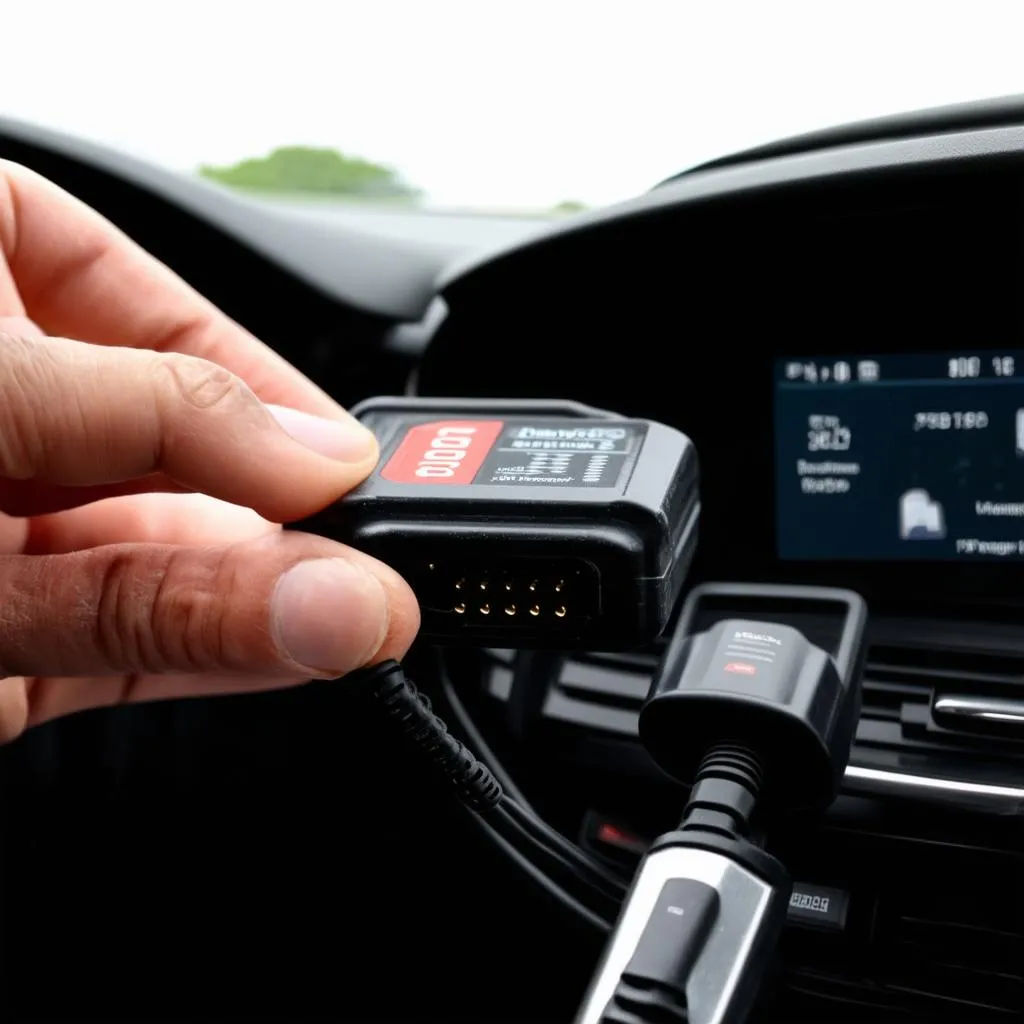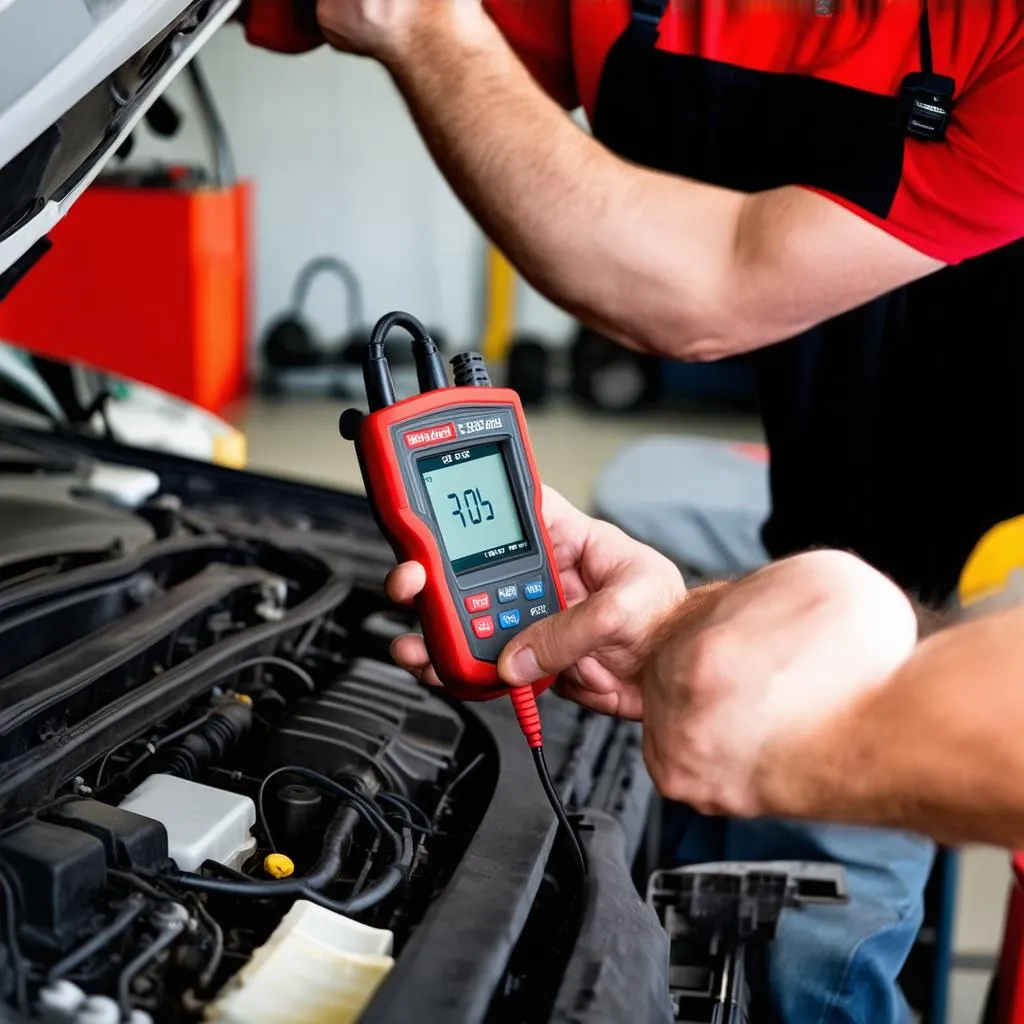“Check engine” light glaring like a demon’s eye? It’s a sight that strikes fear (and often frustration) into the heart of every car owner. Our first instinct? Grab that trusty OBD scanner and decipher the cryptic codes. But wait, what if the dealership has somehow locked out your access? Could they really block your OBD scanner? Let’s dive into the intricate world of car electronics and separate myth from mechanic.
Demystifying the OBD Scanner and Dealership Access
The thought of a dealership blocking your OBD scanner might seem like something out of a sci-fi thriller, but the reality is a bit more nuanced. To fully grasp the situation, we need to understand the different players involved.
What is an OBD Scanner?
Imagine your car speaking a secret language, one filled with technical jargon about its inner workings. An OBD scanner is your trusty translator, a device that plugs into your car’s OBD-II port (usually found under the dashboard) and decodes those mysterious diagnostic codes. This empowers you to pinpoint potential issues, from a faulty oxygen sensor to a misfiring cylinder.
The Dealership’s Perspective: Diagnostics and Repairs
Dealerships, armed with advanced diagnostic tools and trained technicians, rely on accessing your car’s computer system for maintenance and repairs. They delve deep into the electronic brain of your vehicle, often using dealer-level scan tools that can access more information than standard OBD scanners.
Can a Dealership Block Your OBD Scanner?
Here’s the crux of the matter: Dealerships cannot outright block your access to the OBD-II port. It’s a standardized system mandated by law for all vehicles sold in the US since 1996. However, there are a few scenarios that might lead you to believe otherwise:
-
Software Glitches: As with any technology, software issues within the car’s computer system can occasionally prevent an OBD scanner from establishing a connection. This is more likely a temporary glitch rather than a deliberate blockage.
-
Proprietary Protocols: While the OBD-II port is standardized, some manufacturers might use proprietary communication protocols for specific functions or advanced diagnostics. This could limit the information accessible to generic OBD scanners, requiring a dealer-level tool for a complete picture.
-
Security Measures: Modern cars, especially luxury or high-performance models, often have advanced security systems to prevent unauthorized access and tampering. These systems might not necessarily “block” your OBD scanner, but they could limit the information available or require specific procedures for accessing certain modules.
Addressing Common Concerns:
“My OBD Scanner Worked Before, But Now It’s Not Connecting!”
Before you jump to conclusions about dealership conspiracies, consider these possibilities:
- Check the Obvious: Ensure the scanner is properly plugged in, the car’s ignition is in the “on” position (or as instructed by your scanner’s manual), and there are no blown fuses related to the OBD-II port.
- Try Another Scanner: Sometimes, the issue might lie with your scanner itself. Borrowing a friend’s or using one at an auto parts store can help isolate the problem.
- Software Updates: Just like your smartphone, OBD scanners often require software updates to stay compatible with newer vehicles or address potential bugs. Check the manufacturer’s website for the latest software version.
“I Think My Car Has a Hidden Menu or Special Access Point!”
The world of automotive electronics is vast and ever-evolving, but it’s important to approach claims of “secret menus” or hidden access points with a healthy dose of skepticism. While some manufacturers might have engineer modes or diagnostic procedures that are not publicly documented, tampering with these without proper knowledge can have unintended consequences.
The Importance of Open Diagnostics and Right to Repair
The debate surrounding access to vehicle data and the “right to repair” movement is gaining traction. Advocates argue for consumer rights to access their own vehicle’s data and choose independent mechanics for repairs, while manufacturers cite concerns about safety, security, and intellectual property.
As car technology advances, the issue of access and control over diagnostic information is likely to become even more complex. Staying informed about your rights as a car owner and supporting initiatives that promote open diagnostics is crucial for a fair and competitive automotive repair market.
Feng Shui and the Flow of Automotive Energy
Interestingly, the concept of accessible energy flow in a car, as emphasized in Feng Shui, aligns well with the idea of open diagnostics. Just as a balanced flow of energy is vital for a harmonious living space, transparent access to vehicle information ensures a healthy relationship between car and owner.
Need Help Navigating the World of Car Diagnostics?
We’re here to help! If you’re facing persistent issues with your OBD scanner or need expert advice on diagnosing your car’s woes, don’t hesitate to reach out to our team of automotive gurus. Contact us on WhatsApp at +84767531508 for 24/7 support. We can assist you with:
- Troubleshooting OBD scanner connection problems
- Recommending reliable OBD scanners for your specific car model
- Providing guidance on interpreting diagnostic codes
- Connecting you with trusted mechanics in your area
 OBD Scanner Connected to Car
OBD Scanner Connected to Car
 Mechanic Using Diagnostic Tool
Mechanic Using Diagnostic Tool
Remember, knowledge is power when it comes to car maintenance. By understanding how OBD scanners work and the limits of dealership control, you can empower yourself to make informed decisions about your vehicle’s care.
Explore More:
Let us know your thoughts in the comments below! Have you ever encountered issues with your OBD scanner after a dealership visit? Share your experiences and join the conversation!
